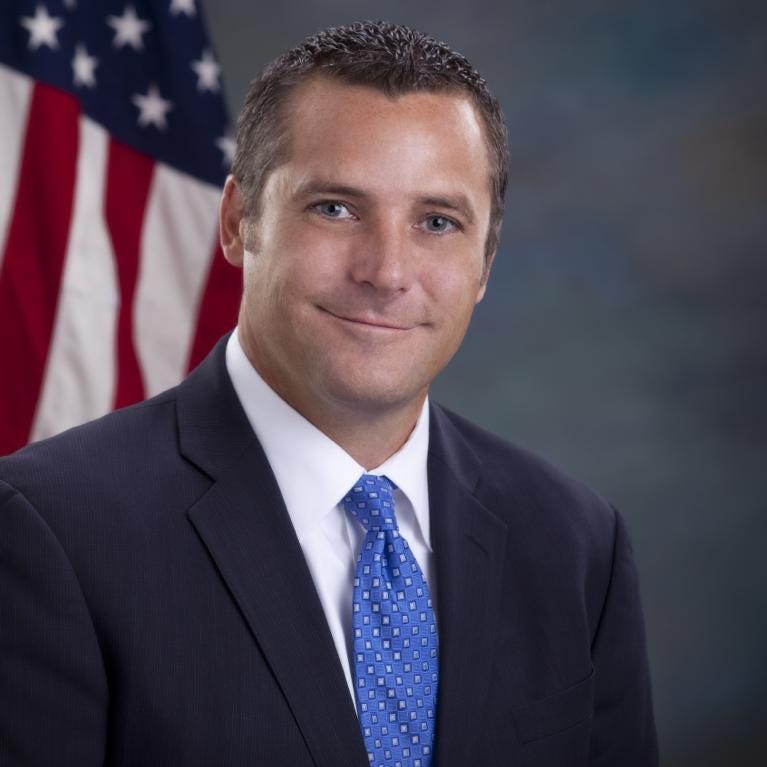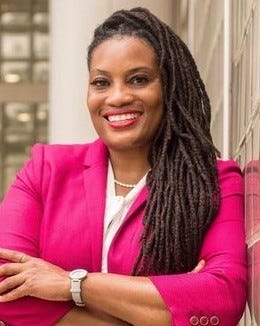SPIKED: Indiana Democrats booted two black female candidates from primary ballot for U.S. Senate
This story below was spiked by a national political website I sometimes write for.
It’s from last month, but still hot.
This should have been a national headline. Why wasn’t it?
Democrats have been talking about diversity for 30 years, but here in Indiana they kicked TWO black female Democrats off the ballot for U.S. Senate — eliminating competition and allowing Hammond Mayor Tom McDermott to walk away with the Democratic nomination.
Indiana Democrats boot two black female candidates from primary ballot for U.S. Senate!
Feb. 19, 2022
By Margaret Menge
Two black women in Indiana stepped forward to challenge U.S. Senator Todd Young, a Republican, this year as he seeks re-election to a second term. But both were kicked off the Democratic primary ballot after a challenge from fellow Democrats, to clear a path for Tom McDermott, the mayor of Hammond.
“I’m really sad that Mr. McDermott challenged both African-American female people on this campaign,” said Valerie McCray, one of the two candidates challenged. “We had an opportunity to do something different here in Indiana and Mr. McDermott has destroyed that.”

State law in Indiana requires that candidates for U.S. Senate and governor get 4500 signatures in order to qualify for the ballot – 500 in each of the nine congressional districts in the state.
Signatures have to be turned in to the state by Feb. 4, for the May primary election.
A long-time friend of McDermott’s, attorney Scott Yahne, brought both challenges before the Indiana Election Commission at a hearing on Feb. 18. He said McCray failed to get 500 signatures in each congressional district.
“I am not going to have those numbers. I know that,” McCray said. “But what I also wanted to go on record was, December 12, it was my understanding that I had 3,500 signatures, only to find out that someone faked all of that and we basically had to start all over, hit the ground running, December 12.”
It wasn’t an accident, she told commissioners.
“It was clearly sabotage on our campaign, clearly from someone who did not want us to be on the ballot, me to be on the ballot,” she said. “It was very intricate, it was very well planned and the whole goal seemed to have been to run out our clock, until I wouldn’t be able to collect the rest of those signatures.”

McCray named the saboteur as a “Mr. Duncan,” and turned over text messages she exchanged with him, asking the Indiana Election Commission to investigate.
McCray is a licensed psychologist from Indianapolis. She supports Medicare for All and in a candidate survey for Ballotpedia, when asked whom she most admired, she named Illinois's former Democratic U.S. senator, Carol Moseley Braun.
The three Democratic candidates, she said, had together collected 17,000 signatures – more than three times the number that Todd Young collected.
“The evidence is overwhelming that Hoosiers want to see competition on both sides of the aisle,” she told the commissioners, asking that they leave her name on the Democratic primary ballot.
Instead, they voted to uphold the challenge and remove her.
But before they did, she called out McDermott.
“It’s pretty obvious. If no one challenges these signatures, we’re on the ballot,” said McCray. “Mr. McDermott on the campaign trail was constantly saying he wanted all three candidates to be on the ballot… I think that him wanting to be the only candidate on the ballot is just sad. It’s the saddest thing that could happen to this campaign, and it’s going to have a negative effect on the voters because the voters know they don’t have a clear choice.”
Karen Celestino-Horseman, one of two Democrats on the commission, told McCray before voting that she wants to see “strong women” and “women of color” in elective office.
“However,” she said, “to get there, you have to learn and educate yourself regarding the laws and rules. You can’t sit there and say to anyone that these rules don’t apply to us because we are people of color.”
McCray denied claiming that the rules didn't apply to her, and said only that she wanted to get on record the reason she wasn't able to qualify for the ballot.
The other Democratic candidate for Senate who was challenged, a civil rights attorney from Gary named Haneefah Khaaliq, asked at the hearing: “What was your reason for challenging us two?”
Yahne referred to his long-time friendship with McDermott.
In presenting his case against Khaaliq he described how he requested and examined the petitions she’d submitted, saying he found that she was short signatures in one of Indiana’s nine congressional districts -- the 5th district, which includes Carmel and the larger area north of Indianapolis.
“I counted 349 signatures. That falls beneath the threshold of 500,” he said.
But the candidate, Khaaliq, said the county’s count of signatures appeared to freeze on Feb. 1, and that hundreds of signatures her campaign turned in the last week did not appear to have been entered into the system. The deadline for turning in signatures was Feb. 4, the day of a major snowstorm that closed many county offices in the state.

“Did you secure 500 signatures in congressional district five?” Yahne asked on cross examination.
“I absolutely did,” Khaaliq replied.
In a passionate closing statement, she questioned the integrity of the system that leaves it to county clerks to enter signatures into a system, and doesn't specify how much time they may take to do this.
“Now, like the others I, too, could have brought a challenge against any of the candidates," she said. "I did not, because I believe the three requirements outlined by our United States Constitution to run for the United States Senate is sufficient: that you be 30 years old, that you live in the state you want to represent, and that you be a United States citizen.”
The commission voted to uphold the challenge and to remove Khaaliq’s name from the ballot.
Tom McDermott, now in his fifth term as mayor of Hammond, the state’s 8th largest city, is now the only Democrat on the ballot to challenge Young in November. And Young is the only Republican running after the commission found that his primary challenger, Danny Niederberger, had not turned in enough signatures in four congressional districts.
You can watch the full video of the February 18 hearing before the Indiana Election Commission on YouTube, on the Indiana Secretary of State’s channel.






